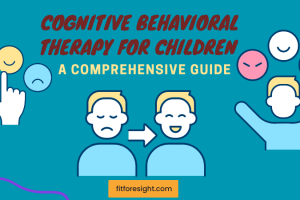Keeping Your Baby Safe and Warm
Winter is a beautiful season, but it can also be challenging, especially when it comes to infant care. Newborns and young babies are particularly vulnerable to the cold, which means parents must take extra precautions to keep their little ones safe and warm during the chilly months. In this article, we’ll explore the best practices for infant care in winter, offering valuable insights and tips to ensure your baby’s comfort and health.
1. Dress Your Baby in Layers: Layering is the key to keeping your infant warm during the winter. Start with a soft, moisture-wicking base layer to keep sweat away from your baby’s skin. Add a warm, but breathable middle layer, and finish with a cozy outer layer. Don’t forget to include hats, mittens, and booties to protect their extremities.
2. Choose the Right Fabrics: Opt for natural and breathable fabrics like cotton and wool for your baby’s clothing. These materials help regulate body temperature and prevent overheating. Avoid synthetic materials, which can trap moisture and cause discomfort.
3. Maintain a Comfortable Room Temperature: The ideal room temperature for a baby’s nursery is around 68-72°F (20-22°C). Use a room thermometer to monitor the temperature, and adjust the layers of clothing or bedding as needed. Make sure to keep the room well-ventilated but avoid drafts.
4. Blankets and Swaddling: Using appropriate blankets and swaddling techniques can help your baby sleep comfortably. Ensure that the baby is snug but not too tight. Remember to leave enough room for their hips to move freely.
5. Frequent Diaper Changes: Babies can become uncomfortable if their diapers are wet or soiled. Make sure to change diapers promptly to prevent skin irritation and keep your baby cozy.
6. Hydration and Nutrition: Breast milk or formula remains your baby’s primary source of nutrition in the winter. Ensure your baby is well-fed and hydrated to maintain body temperature and overall health. Consult your pediatrician for specific feeding guidelines.
7. Skin Care: Cold weather can be harsh on a baby’s delicate skin. Use a gentle, hypoallergenic moisturizer to prevent dryness. Remember to limit bath time, as excessive bathing can strip the skin of essential oils.
8. Protect from Illness: Infants are more susceptible to colds and other winter illnesses. Keep your baby away from sick individuals and ensure that visitors wash their hands before holding your baby. Consider getting the flu shot for yourself and family members to prevent illness transmission.
9. Avoid Overheating: While keeping your baby warm is essential, be cautious about overheating. Check your baby’s neck or back to ensure they are not too hot. Overheating can increase the risk of Sudden Infant Death Syndrome (SIDS).
10. Outdoor Safety: If you plan to take your baby outdoors in the winter, ensure they are well-bundled with a weather-appropriate stroller cover. Avoid exposing your baby to extreme cold and strong winds.
Conclusion: Caring for an infant during the winter months requires attention to detail and a commitment to maintaining their comfort and health. By following these essential tips, you can ensure your baby stays snug and warm throughout the season. Remember, every baby is unique, so pay attention to their cues and consult your pediatrician for personalized advice on infant care in winter.

























Add Comment